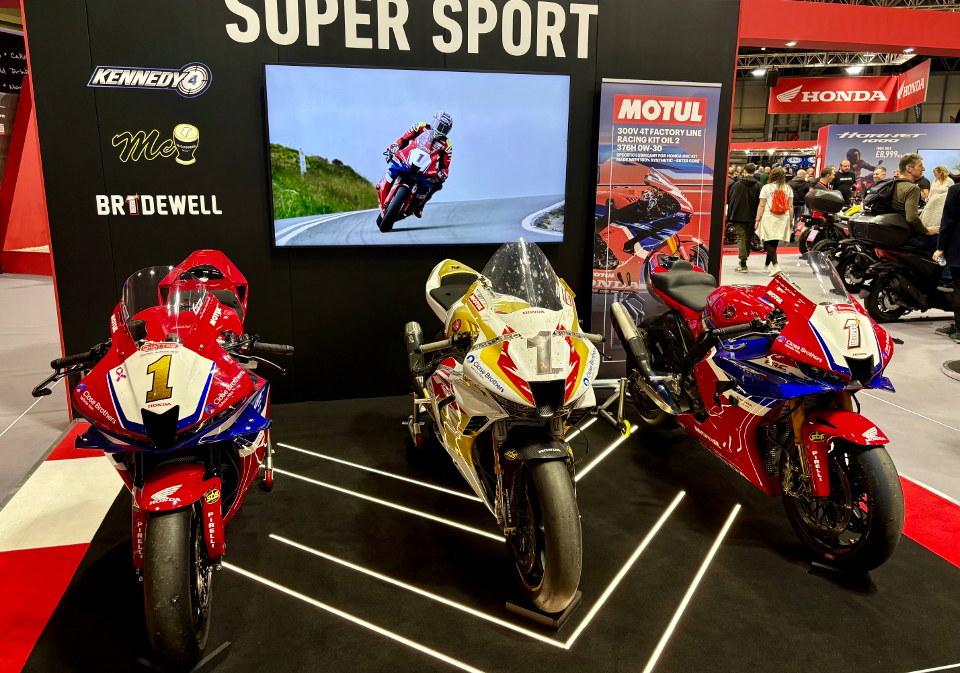Last Friday afternoon, I had the pleasure of attending Motorcycle Live 2024 at the NEC in Birmingham. A key event in the biking calendar, it's a paradise for two-wheel enthusiasts, showcasing everything from classic cruisers to cutting-edge sports bikes.
The event is still predominantly centred around petrol-powered 'big bikes'—fuelled by the visceral appeal of roaring, throbbing engines—but there are signs that electrification is beginning to arrive on the scene, admittedly much more slowly than it has with motorcycle's four wheeled cousins.
Brands such as Zero Motorcycles EMEA, Vmoto UK & Ireland LTD, Harley-Davidson Motor Company LiveWire, BRP Can-Am, Energica Motor Company, OSET Electric Bikes were flying the flag for electric as a genuine, and exciting alternative to ICE, whilst other brands showed EV concepts like Honda.
There was also a growing number of electric scooters from the likes of Yamaha Motor Co., Ltd., BMW Motorrad UK, KYMCO UK Peugeot Motocycles and commuter bikes like Eskuta.
All of these eco-friendly EV alternatives are carving out a small niche, but the industry faces a steep road to widespread adoption, held back by the same old narrative of range anxiety, charging infrastructure, and just the sheer emotive connection existing riders have with fossil fuel powered engines.
The UK motorcycle market has been experiencing interesting shifts. There was a resurgence in popularity post-pandemic, however, recent statistics indicate a decline in sales over the last few years.
You see the demographic of UK motorcyclists is ageing, and this was very evident at the show, with the average rider now in their 40s or 50s.
While younger buyers are showing interest, especially in affordable, eco-conscious electric options, there’s a pressing need for traditional brands like Triumph Motorcycles Limited Ducati Motor Holding, Suzuki GB PLC, Kawasaki Motors Europe N.V. KTM AG Indian Motorcycle Company Royal Enfield Norton Motorcycles Jawa | Yezdi | BSA Motorcycles to engage this next generation through making biking more accessible, cutting the barriers to entry, demystifying the jargon and highlighting the easy to use technology, style, and convenience on offer in their latest models.
It might not be a popular view, but to me the biggest long-term opportunity seems to lie in the electric segment, driven by government incentives and urban congestion charges steering customers toward cleaner transport. Like with cars, challenges will include consumer perception, media negativity, regulatory hurdles, economic fluctuations, and competition from micro mobility options like e-scooters, e-bikes, and public transport innovations.
The path ahead for motorcycling is anything but predictable, balancing hobbyist passions, commuter needs, and environmental demands. One thing is for certain, that long term it needs to engage a younger audience and open up the joys of two wheels to more people.
What do you think?|
If you’d like a conversation about your brand's marketing, why not schedule a FREE 30-minute assessment today here? It will be well worth your time.
We Are Acuity has over 25 years experience in automotive marketing. To find out more have a look at our Automotive page here.











